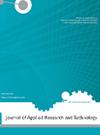基于系统动力学的行业项目组合管理模型
Q3 Engineering
Journal of Applied Research and Technology
Pub Date : 2022-07-01
DOI:10.22201/icat.24486736e.2022.20.3.1122
引用次数: 0
摘要
在组织中,最大的挑战之一在于战略决策。在项目投资组合管理的案例中,公司已经结合了经典的工具来减少这个过程中的不确定性。本文提出了一个基于系统动力学的新模型,与传统的战略项目管理模型不同。首先,本文提出了一个概念模型,该模型是利用Peter Chekland和Peter Senge提出的因果关系理论所提出的“软系统方法论”的根定义构建的。随后,提出了基于john Sterman提出的流模型。该模型将战略思维、项目组合管理、项目管理和生产管理之间的相互作用转化为一个数学模型,该模型解释了真实系统中增长和下降的形式。为了验证它,在哥伦比亚家禽部门应用了它。该模型是一个虚拟的学习环境,减少了与项目组合相关的战略决策的不确定性。本文章由计算机程序翻译,如有差异,请以英文原文为准。
Model based on system dynamics for project portfolio management in industries
In organizations, one of the biggest challenges lies in strategic decision-making. In the case of Project Portfolio Management, companies have been incorporating classic tools to reduce uncertainty in this process. This document proposes a new model based on system dynamics, with a different approach to classic strategic project management models. Initially a conceptual model constructed using the root definition of the "Soft System Methodology", proposed by the causal relationships proposed by Peter Chekland and Peter Senge, is proposed. Subsequently, the flow model built on the basis of what is proposed by Jhon Sterman is presented. The model translates the interactions of strategic thinking, project portfolio management, project management and production management into a mathematical model that explains the forms of growth and decline in the real system. It was applied in the Colombian poultry sector in order to validate it. The model is a virtual learning environment that reduces uncertainty in strategic decision-making associated with project portfolios.
求助全文
通过发布文献求助,成功后即可免费获取论文全文。
去求助
来源期刊

Journal of Applied Research and Technology
工程技术-工程:电子与电气
CiteScore
1.50
自引率
0.00%
发文量
0
审稿时长
6-12 weeks
期刊介绍:
The Journal of Applied Research and Technology (JART) is a bimonthly open access journal that publishes papers on innovative applications, development of new technologies and efficient solutions in engineering, computing and scientific research. JART publishes manuscripts describing original research, with significant results based on experimental, theoretical and numerical work.
The journal does not charge for submission, processing, publication of manuscripts or for color reproduction of photographs.
JART classifies research into the following main fields:
-Material Science:
Biomaterials, carbon, ceramics, composite, metals, polymers, thin films, functional materials and semiconductors.
-Computer Science:
Computer graphics and visualization, programming, human-computer interaction, neural networks, image processing and software engineering.
-Industrial Engineering:
Operations research, systems engineering, management science, complex systems and cybernetics applications and information technologies
-Electronic Engineering:
Solid-state physics, radio engineering, telecommunications, control systems, signal processing, power electronics, electronic devices and circuits and automation.
-Instrumentation engineering and science:
Measurement devices (pressure, temperature, flow, voltage, frequency etc.), precision engineering, medical devices, instrumentation for education (devices and software), sensor technology, mechatronics and robotics.
 求助内容:
求助内容: 应助结果提醒方式:
应助结果提醒方式:


